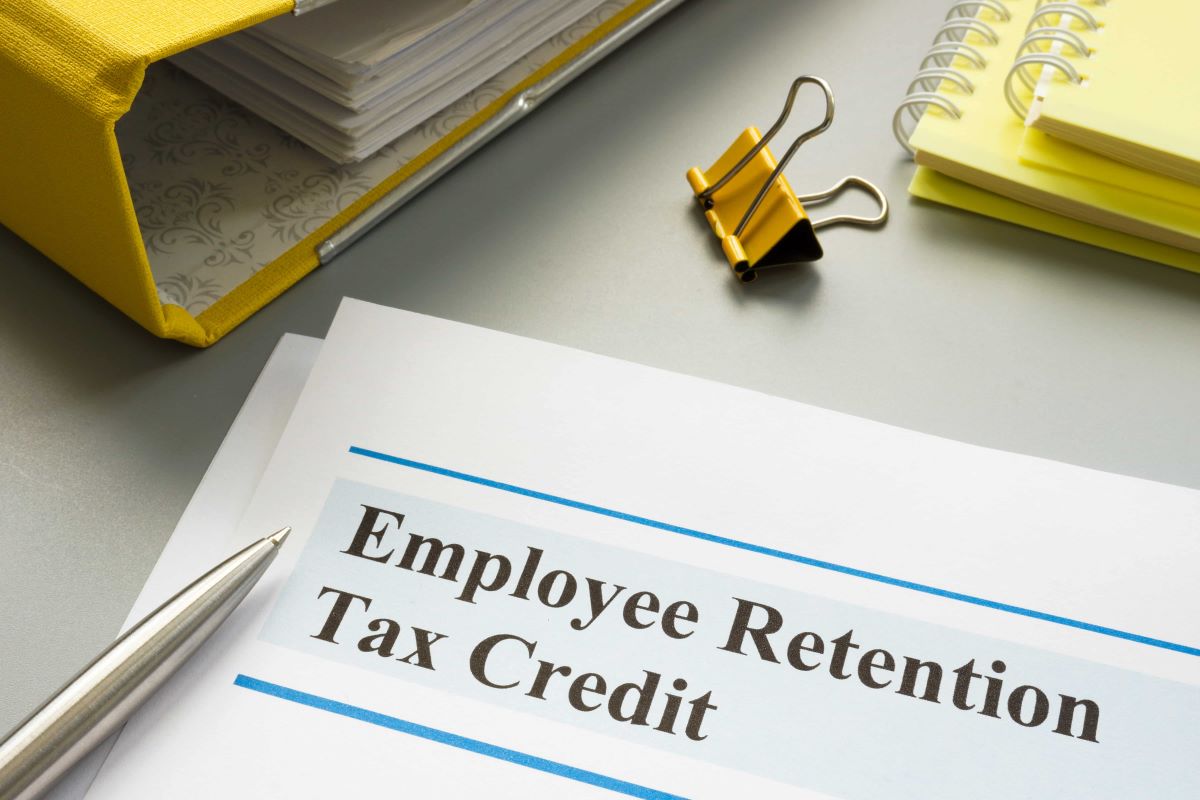

Finance
How Many Payday Loans Can I Get At Once?
Modified: February 6, 2024
Discover how many payday loans you can get at once and manage your finances effectively. Learn about the regulations and best practices for obtaining multiple loans.
(Many of the links in this article redirect to a specific reviewed product. Your purchase of these products through affiliate links helps to generate commission for LiveWell, at no extra cost. Learn more)
Table of Contents
Introduction
Understanding the World of Payday Loans
Welcome to the complex world of payday loans, where individuals often find themselves in need of quick financial assistance. These short-term, high-interest loans are designed to provide immediate funds to borrowers who are typically unable to secure traditional bank loans due to poor credit scores or other financial challenges. While payday loans offer a quick fix for urgent financial needs, they come with significant risks and should be approached with caution.
For many individuals facing unexpected expenses or financial emergencies, the allure of payday loans lies in their accessibility and speedy approval process. However, it’s crucial to understand the implications of taking out multiple payday loans simultaneously, as this can lead to a cycle of debt that is difficult to escape.
In this comprehensive guide, we’ll delve into the intricacies of payday loans and explore the critical question: How many payday loans can I get at once? By gaining a deeper understanding of the factors that influence the number of payday loans a person can obtain, you’ll be better equipped to make informed financial decisions and explore alternative avenues for managing short-term cash needs.
Understanding Payday Loans
Payday loans, also known as cash advances, are small, short-term loans that are typically due on the borrower’s next payday. These loans are often sought by individuals who need immediate funds to cover unexpected expenses, such as car repairs, medical bills, or utility payments. The application process for payday loans is relatively simple and does not require extensive credit checks, making them accessible to individuals with poor credit histories.
When a borrower applies for a payday loan, they provide the lender with a post-dated check or authorize an electronic withdrawal from their bank account for the amount borrowed, plus fees and interest. The loan amount is usually a percentage of the borrower’s upcoming paycheck. While the ease of obtaining payday loans can be appealing, it’s essential to recognize the high costs associated with these loans. The annual percentage rate (APR) for payday loans is significantly higher than that of traditional bank loans, often exceeding 400%.
Many borrowers find themselves trapped in a cycle of debt due to the high costs and short repayment periods of payday loans. As a result, it’s crucial to approach these loans with caution and fully understand the terms and conditions before proceeding. While payday loans can provide immediate relief, they should be used judiciously and responsibly to avoid long-term financial repercussions.
How Many Payday Loans Can I Get at Once?
One of the most pressing questions for individuals considering payday loans is the limit on the number of loans they can obtain simultaneously. While regulations vary by location, in many cases, borrowers are limited to a single payday loan at a time. This restriction is in place to protect consumers from the potential pitfalls of accumulating multiple high-interest loans that can lead to a cycle of debt.
It’s important to note that attempting to secure multiple payday loans from different lenders simultaneously can have severe consequences. Lenders typically verify a borrower’s information, including outstanding payday loans, before approving a new loan. Attempting to conceal existing payday loans from lenders is not only unethical but can also lead to legal and financial repercussions.
Understanding the limitations on the number of payday loans a borrower can have at once is crucial for making informed financial decisions. Rather than seeking multiple payday loans, individuals are encouraged to explore alternative options for managing their financial needs, such as seeking assistance from family and friends, negotiating payment plans with creditors, or exploring low-interest loan alternatives.
By recognizing the constraints on obtaining multiple payday loans and exploring alternative avenues for financial assistance, individuals can make informed choices that align with their long-term financial well-being.
Factors That Affect the Number of Payday Loans You Can Get
Several factors influence the number of payday loans an individual can obtain, with regulations and lending practices playing a significant role in determining eligibility. Understanding these factors is essential for borrowers seeking to navigate the landscape of payday loans responsibly.
Creditworthiness
While traditional credit checks may not be a prerequisite for obtaining payday loans, lenders often assess a borrower’s creditworthiness based on their income and ability to repay the loan. Individuals with a history of timely loan repayments and stable income may be considered more eligible for payday loans. However, this does not necessarily translate to the ability to secure multiple loans simultaneously, as responsible lending practices aim to prevent borrowers from falling into a cycle of debt.
State Regulations
The regulations governing payday loans vary by state and can significantly impact the number of loans a borrower can obtain at once. Some states have implemented strict limitations on payday lending to protect consumers from predatory practices, including restrictions on the number of concurrent loans a borrower can have. It’s crucial for individuals to familiarize themselves with the payday loan regulations in their state to understand the limitations and protections in place.
Loan Repayment History
Borrowers with a history of timely repayment of payday loans may be perceived as lower risk by lenders. However, responsible lenders may still limit the number of concurrent loans to prevent borrowers from overextending themselves financially. Demonstrating responsible borrowing behavior by repaying loans on time can positively influence a borrower’s eligibility for future loans.
Income and Affordability
Lenders assess an individual’s income and financial obligations to determine the affordability of a payday loan. While a higher income may increase the likelihood of loan approval, lenders prioritize responsible lending practices and may limit the number of loans to ensure borrowers can manage their financial obligations without undue strain.
By considering these factors, borrowers can gain insight into the dynamics that influence the number of payday loans they can obtain and make informed decisions aligned with their financial well-being.
Alternatives to Multiple Payday Loans
While the need for immediate funds may prompt individuals to consider multiple payday loans, exploring alternative avenues for financial assistance can provide more sustainable solutions without the risks associated with high-interest, short-term borrowing.
Personal Installment Loans
Personal installment loans from reputable financial institutions or online lenders offer a viable alternative to payday loans. These loans typically have lower interest rates and longer repayment terms, providing borrowers with the flexibility to manage their financial needs without falling into a cycle of debt. It’s essential to compare loan terms and explore options that align with your financial circumstances.
Credit Union Loans
Credit unions often provide small-dollar loans with favorable terms for their members. These loans may come with lower interest rates and more lenient repayment terms compared to traditional payday loans. Building a relationship with a credit union can offer access to responsible lending options and financial guidance.
Emergency Assistance Programs
Many communities and nonprofit organizations offer emergency assistance programs to help individuals facing financial hardships. These programs may provide grants, no-interest loans, or other forms of assistance to cover essential expenses, offering a lifeline to those in need without the burden of high-interest debt.
Negotiating Payment Plans
When dealing with outstanding bills or financial obligations, reaching out to creditors and service providers to negotiate manageable payment plans can alleviate immediate financial strain. Many creditors are willing to work with individuals to create realistic repayment arrangements, providing a more sustainable alternative to taking out multiple payday loans.
Financial Counseling and Assistance
Seeking guidance from reputable financial counselors or nonprofit organizations can offer valuable insights into managing financial challenges. These professionals can provide personalized advice, budgeting assistance, and resources to help individuals navigate their financial circumstances and explore alternatives to high-cost borrowing.
By exploring these alternatives, individuals can access responsible financial solutions that address their immediate needs while safeguarding their long-term financial well-being. Understanding the available options and seeking assistance when needed can empower individuals to make informed decisions and avoid the pitfalls of multiple payday loans.
Conclusion
As we conclude our exploration of the world of payday loans and the limitations on the number of loans an individual can obtain, it’s evident that responsible borrowing practices and informed decision-making are paramount. While the allure of quick cash may lead individuals to consider multiple payday loans, it’s essential to recognize the potential risks and seek alternative solutions that align with long-term financial well-being.
Understanding the factors that influence the number of payday loans a borrower can obtain, including creditworthiness, state regulations, loan repayment history, and affordability, provides valuable insights into the lending landscape. By recognizing the limitations in place and the intent behind responsible lending practices, individuals can approach payday loans with a clear understanding of their implications.
Exploring alternatives to multiple payday loans, such as personal installment loans, credit union loans, emergency assistance programs, negotiating payment plans, and seeking financial counseling, offers a path to financial stability without the burden of high-cost, short-term borrowing. These alternatives empower individuals to address their immediate financial needs while avoiding the potential pitfalls of accumulating multiple payday loans.
Ultimately, the world of payday loans is complex, and the decision to pursue such loans should be approached with caution and a thorough understanding of the associated risks. By prioritizing financial literacy, exploring responsible lending options, and seeking assistance when needed, individuals can navigate their financial challenges with resilience and confidence, paving the way for a more secure financial future.














